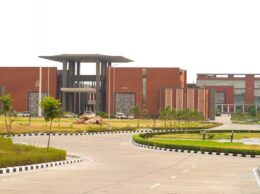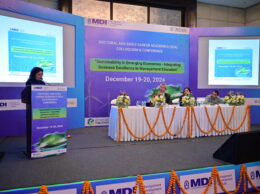Delhi – “The children of today will make the India of tomorrow. The way we bring them up will determine the future of the country,” said Pandit Jawaharlal Nehru, whose birthday the country celebrates as Children’s Day. In connection with National Children’s Day, which falls on 14th November, Teach For India, joining hands with Kids Education Revolution, is celebrating Children’s Day Week from 14th November to 20th November, to bring out stories of student leadership across the country.
With more than 4000+Teach For India Alumni reaching out to more than 33 million children – that’s 1 in 10 children in India, the organisation identifies children who stand out as change agents, taking initiatives at various levels of the system from schools, communities to governance and policy. As India faces its own challenges on many socio-economic, and environmental fronts, its youth offer a ray of hope.
Here are two young leaders from Delhi who are making a difference to an environmental and a social problem in their own ways:
- Kumkum Kumari – a 9th grader from Delhi, aims to provide justice to the transgender community, She conducted surveys in her community in order to understand their challenges and feelings. With her team, she performed street plays and initiated several conversations around this sensitive subject. As a result, she was able to change the mindsets of a few people in her community including her own family’s, by way of impactful, meaningful conversations.
- Arshiya Kaushik – an 11th grader, has worked with multiple NGOs like “Tender Hearts” and “Prayas” to name a few. While she was working with Tender Hearts, she taught a group of children from under-resourced households. She introduced a new subject called ‘Learn By Eyes’ where she focuses on teaching through visuals. She has even started sex education classes for women in her community and has delivered a TED talk on rape culture.
- Sumera Shakeel – Meet Sumera Shakeel from Government Girls Secondary School No. 3, Sec 4, Dr. Ambedkar in New Delhi, who aims to one day start an organization to educate and rehabilitate children of immigrants and children in post-conflict areas. Sumera’s belief in the compounding effect of education drives her immediate commitment to change, which she practices by learning more about the causes of political unrest, visiting places such as the Rohingya Camp in Delhi, teaching herself how to facilitate peer to peer learning and reminding herself of the important role of empathy.
- Kirti Tiwari – Ethnobotany is not a term many would be familiar with. But for Kirti Tiwari (student at Gangotri Public School), the study of a region’s plants and how they can be used in the long term is a familiar passion. She wishes to mass produce low-cost herbal medicines to ensure better treatment of the people in her communities. Through conducting study circles and classes among peers and juniors, she hopes to create awareness regarding the correct use of plants and ignite a passion for science-based fields.









